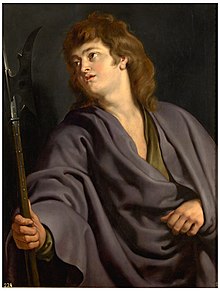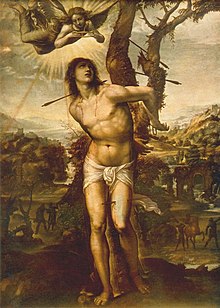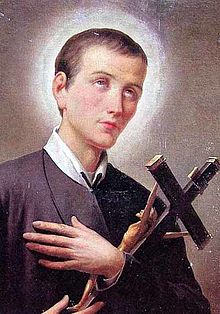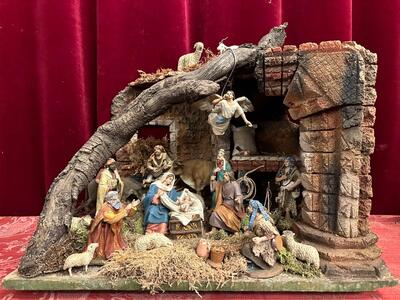|
Saint
Paul the Apostle
Saint Paul (c. 1611) by Peter Paul Rubens
Apostle to the Gentiles, Martyr
Born
Saul of Tarsus
c. 5 AD[1]
Tarsus, Cilicia, Roman Empire
Died
c. 64/65 AD[2][3]
Rome, Italia, Roman Empire[2][4]
Venerated in
All Christian denominations that venerate saints
Canonized
Pre-Congregation
Major shrine
Basilica of Saint Paul Outside the Walls, Rome, Italy
Feast
25 January – Feast of the Conversion of Saint Paul
10 February – Feast of Saint Paul's Shipwreck in Malta
29 June – Feast of Saints Peter and Paul (with Peter the Apostle)
30 June – Former solo feast day, still celebrated by some religious orders
18 November – Feast of the dedication of the basilicas of Saints Peter and Paul
Saturday before the sixth Sunday after Pentecost – Feast of the Twelve Apostles and Paul the thirteenth Apostle (Armenian Apostolic Church)[5]
Attributes
Christian martyrdom, sword, book
Patronage
Missionaries, theologians, evangelists, and Gentile Christians, Malta
Theology career
Education
School of Gamaliel[6]
Occupation(s)
Christian missionary and preacher
Notable work
Certain:
Epistle to the Romans
Epistle to the Galatians
First Epistle to the Corinthians
Second Epistle to the Corinthians
First Epistle to the Thessalonians
Epistle to Philemon
Epistle to the Philippians
Disputed:
Second Epistle to the Thessalonians
Epistle to the Colossians
Epistle to the Ephesians
First Epistle to Timothy
Second Epistle to Timothy
Epistle to Titus
Theological work
Era
Apostolic Age
Language
Koine Greek
Tradition or movement
Pauline Christianity
Main interests
Torah, Christology, eschatology, soteriology, ecclesiology
Notable ideas
Pauline privilege, Law of Christ, Holy Spirit, Unknown God, divinity of Jesus, thorn in the flesh, Pauline mysticism, biblical inspiration, supersessionism, non-circumcision, salvation
|


































